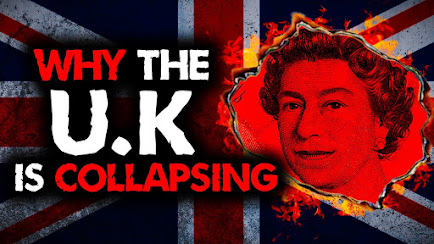The twin wraths of Covid and the conflict in Ukraine have shaken our society to its very foundations over the past three years. After the Cold War ended, hopes of The End of History were dashed. Legislators can presently not imagine that shocks can be consumed essentially by “going out to shop” – as George W Shrub put it, when he encouraged individuals to happen as typical directly following 9/11 – or by submitting to the natural powers of progress – as Tony Blair appointed. Instead, we are thrown into a world of geopolitics from the dark ages, super-wicked issues, events known as “black swans,” and “unknown unknowns.”
However, the system is becoming sluggish rather than being compelled to react to these changes. A&E overcrowding, a lack of beds, and extraordinary delays in ambulances all raise the possibility that the NHS is facing a crisis that is even more severe than it was during Covid. In the meantime, high-ranking scientists warn that the UK is no more prepared for a pandemic today than it was in 2020 because it has bafflingly deconstructed its preparedness infrastructure. We have so far avoided the threat of blackouts due to pure luck, as this winter was somewhat warmer. 18 months after launching an official review, the Government has delayed the publication of its promised national resilience strategy amid the chaos.
Our society was supposed to undergo a paradigm shift as a result of Covid and the war in Ukraine. A renewed focus on resilience was supposed to replace the zeal for “efficiency” in public services, as evidenced by the NHS operating close to full capacity even in good times. This may have been influenced by insights from ecology, psychology, and engineering regarding how systems can both survive and thrive in a world that is unstable. The purpose of supply chain obstructions was to increase political interest in food security and domestic production in strategically important industries.
After all, we are already bearing the cost of our previous inadequate strategy. Due to the bills for the Covid lockdowns and the energy price guarantee, taxes are now at their highest level since the war. The NHS was not sufficiently resistant to the shock of a new respiratory virus, so the first was justified. The latter was inevitable as a result of an energy sector that was exposed to fluctuations in international prices.
However, no significant shift in perspective has occurred. The Tories lack a comprehensive vision of a world in which people can live freely and confidently in the face of danger. Neither does Labour, which prefers to engage in ideological warfare against private schools and tease the Right with plans to eliminate the House of Lords.
In No. 10, there does not appear to be any overarching strategy for the NHS other than the usual firefighting: Instead of increasing capacity, tax increases are being used to raise staff wages that have been reduced by inflation. The UK also does not take the need to produce on demand products with greater strategic importance seriously. The nation’s driving Coronavirus test producers have cautioned that they wouldn’t answer another crisis invitation to battle. As the government outsources contracts to China, they are taking the government to court.
In the meantime, the Tories’ inability to match reality with their net zero plans is becoming a threat to national security in and of itself. It has re-banned fracking and disincentivized new North Sea oil investment by slapping huge windfall taxes on the sector, months after publishing a long-term energy strategy that is still bizarrely committed to unreliable renewables. Albeit the Public authority has at long last tossed its weight behind atomic, this isn’t on a sufficiently large scope to forestall limit dropping in the medium term.
Why has there been such little response? Certainly, exhaustion among Tory members is a factor. Perhaps the government has the perception that resilience is a second-order issue that can only be addressed after all of these immediate winter crises have been addressed. Flighty short-termism is additionally installed into the framework institutionally, with the Depository’s Green Book for assessing approaches punishing recommendations that yield future as opposed to quick advantages, for instance.
In light of Covid, Dame Kate Bingham’s comments that she is “beginning to think this is deliberate government policy, just not to invest or not to support the [science] sector” are also instructive. All things considered, refashioning lumps of the Common Assistance to bargain with regular organization as well as concrete avoidable future crises is profoundly rebellious. It shifts the focus of the bureaucratic machine from opaque, cumbersome processes and protocols that are rarely questioned by outsiders to outcomes that are visible, quantifiable, and subject to scrutiny. The incumbent mandarins of the PPE generalist school face a direct threat from the scientific expertise required in areas like pandemic planning.
However, maybe the greatest snag is the straightforward truth that versatility believing is absolutely precarious. It requires dealing with intricate false economies. We are particularly susceptible to lockdowns due, for instance, to our stingy cap on the number of training spots available to new doctors and nurses. Because UK households have higher levels of debt than households in other European nations, furlough was so costly.
One reason the state is feeling the squeeze to spend eye-watering aggregates on friendly and kid care is on the grounds that such countless youthful grown-ups create some distance from their discouraged main residences, and hence their folks, to look for gainful employment. In addition to being costly, resilience thinking requires politicians to address politically contentious issues like the long-term viability of the health care system’s financial model, our irrational fear of new technologies, and the destructive middle-class nimbyism that is obstructing essential infrastructure.
Then, one might also wonder if elite reticence is partly ideological. It’s possible that there is intellectual resistance to switching from managerialism’s “simple complexity,” in which the world can be predicted, controlled, and reduced to utopian models, to resilience thinking’s “general complexity,” which recognizes that the world cannot be predicted and controlled from the top down.
However, the difficult questions cannot be avoided any longer: The current state of complacency is simply insane. Putin’s invasion and Covid’s invasion were not out of the blue. We are permanently more susceptible to pandemics as a result of globalization; Global energy supplies have likely been disrupted for a generation by Putin’s war. We can undoubtedly anticipate that other oil and gas states will manipulate resource flows to bolster their diplomatic weight as the West weans itself off of Russia.
Our leaders, on the other hand, appear to have decided that it is much simpler to persist in the chaos until something finally gives way. A total revolution may only emerge from the ashes of a total system collapse if that is what we require.


